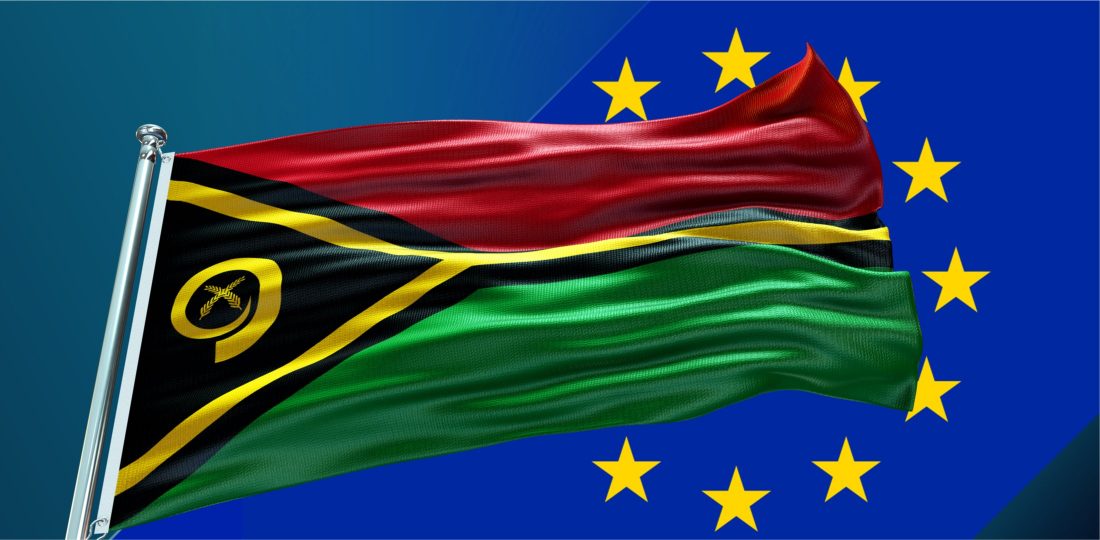
The European Commission (EC) has announced its intention to advance a motion to halt—on a temporary basis—Vanuatu’s visa-free access to the Schengen area due to concerns surrounding the country’s economic citizenship program and its potential security risks to the zone. The motion being put forward seeks to partially and temporary end the visa-free agreement between Vanuatu and the EU/Schengen area. If passed, it would affect all Vanuatu passports granted on or since May 25th, 2015; anyone bearing a passport granted in that period would be barred from using it to enter the EU visa-free.
At the moment, Vanuatu maintains its visa free-travel arrangement with the EU. For years, Vanuatuans have been able to enter the Schengen area/EU and remain there for a maximum of 90 days (out of 180) post-entry (without a visa). Were this upcoming ruling to go into effect, Vanuatuan passport holders would no longer be able to enter the bloc without a visa. Instead, they would need to apply for either a Schengen visa or a national visa (to one of the Schengen countries) in order to travel to any of the following 26 states, which comprise the zone: Austria, Belgium, the Czech Republic, Denmark, Estonia, Finland, France, Germany, Greece, Hungary, Iceland, Italy, Latvia, Liechtenstein, Lithuania, Luxembourg, Malta, the Netherlands, Norway, Poland, Portugal, Slovakia, Slovenia, Spain, Sweden and Switzerland.
Over 60 countries, including Vanuatu, currently enjoy visa free access to the Schengen area. If the council’s proposed ruling goes into effect, Vanuatu will join the 100+ list of countries without a visa-waiver agreement with the EU.
The Republic of Vanuatu, a small island nation located in the Pacifica ocean, launched its citizenship by investment (CBI) program in 2017. Under the “Golden Visa” scheme, foreigners are granted Vanuatu citizenship in exchange for financially investing in the island. After receiving citizenship, investors traditionally acquire a Vanuatu passport. Because Vanuatu has visa-free access to the Schengen area, any newly-naturalized economic citizens can use their new Vanuatu passport to enter the EU without a visa (indeed, Vanuatu’s visa-free status re the EU is one of its main draws for investors).
The EU has long accused the Vanuatu government of not being selective enough in its approval of CBI applications. According to EU official, applicants who would otherwise be rejected from other reputable CBI programs for failing security background checks are often granted citizenship on Vanuatu. Some of the individuals granted Vanuatu citizenship are flagged throughout various EU/Schengen security systems, including Interpool. Another critique of Vanuatu’s CBI program is that it accepts nationals from countries which do not have a visa-waiver agreement with the EU. While other countries traditionally exempt nationals of certain non-visa free countries from eligibility from their respective CBI programs, Vanuatu invites all nationalities to apply for its golden visa scheme. According to critics, through the Vanuatu CBI scheme, people who under normal conditions would be banned from entering the EU without a visa on their original passport—either due to their nationality or because they pose an identifiable security risk—face zero security and are therefore able to gain entry to the zone without a visa.
If the council rules to halt the visa-waiver agreement with Vanuatu, it will be a couple of months before it goes into effect. Once it does, Vanuatu will have the opportunity to work towards satisfying the EU’s security concerns regarding its golden visa program (such as by substantially reforming it or eliminating the scheme entirely). Since the program began, Vanuatuan has earned millions of dollars from investors who purchase citizenship on Vanuatu (the cost of citizenship is 130,000 USD). The loss of the program would significantly affect its national revenue.